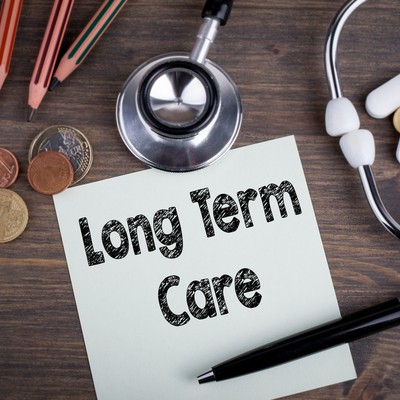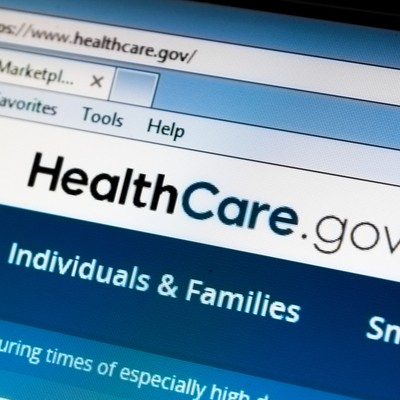
Managed long-term services and supports: Michigan Department of Health and Human Services research report
In the 2017-2018 state budget, the Michigan Legislature asked the Michigan Department of Health and Human Services (MDHHS) to explore implementing managed long-term services and supports (LTSS). The department hired the Center for Health and Research Transformation (CHRT), Health Policy Matters (HPM), and Public Sector Consultants (PSC) to conduct an analysis of the state’s existing long-term services and supports system …
Read more >
Health Insurance Marketplace 2019: Rate Analysis
December 15 is the deadline to get health insurance coverage through the Affordable Care Act. People shopping for health coverage willl be interested to know that premium increases in 2019 are far lower than in recent years, and in some rural and urban Michigan counties certain levels of coverage cost less than last year. Get the details, including county-by-county rates, …
Read more >
Cover Michigan Survey: Use of Health Care Benefits in Michigan
Data from the Center for Health and Research Transformation’s (CHRT) 2018 Cover Michigan Survey show health benefits that Michiganders with health insurance coverage have used in the past year (1)Survey participants were asked whether or not they or other family members covered by their plans used each health care benefit in the past 12 months.. Detail on the Cover Michigan …
Read more >
Quick Facts: Chronic Pain in Michigan
Not everyone suffers from chronic pain in Michigan, but many people do. Our Cover Michigan Survey found that more than 35 percent of the state’s residents say they experienced chronic pain which limited their lives or work within the last year. This is similar result to research finding at least 30% of Americans report suffering from chronic pain. These infographics …
Read more >
Michigan at a crossroads: CHRT highlights key health policy issues for the incoming gubernatorial administration
The Michigan government has jurisdiction over a wide array of health policy issues. From the regulation of insurance products, to oversight of the state’s Medicaid program, to investing in local public health efforts, Michigan policymakers craft policies and budgets that impact the health of millions of Michiganders. This brief provides an overview of four key and timely health policy topics: …
Read more >
Learning health for Michigan: The path forward
In the United States, health care purchasers, consumers, and policymakers are demanding improvements in the quality and efficiency of medical care. A promising approach to meet this demand is the development of what is known as a learning health system (LHS). A learning health system has the capability to continuously study and improve itself. Among many types of benefits it …
Read more >
Changes to Healthy Michigan Plan and Medicaid work requirements
New Michigan Medicaid work requirements and changes to the Healthy Michigan Plan were signed into law on Friday, June 22 and will begin to take effect in 2020. The major changes to the Healthy Michigan Plan are: The new law has added work requirements for non-exempt enrollees, while the previous plan had no work requirements. Previously, Healthy Michigan enrollees with …
Read more >
A Consumer’s Guide to New Michigan Medicaid Work Requirements
New Michigan Medicaid work requirements were signed into law on Friday, June 22, and will begin to take effect in 2020. The new law changes the Healthy Michigan Plan, and 700,000 people will be directly impacted. Of the 2.5 million Michiganders who receive Medicaid coverage, 1.8 million traditional Medicaid enrollees are exempt. The program will start January 1, 2020. Michigan’s …
Read more >
Proposed work requirements for Medicaid in Michigan: June 7, 2018
At the start of 2018, the U.S. Centers for Medicare and Medicaid Services (CMS) announced a major shift in federal policy that would allow states to request permission to establish, and test the impact of, work and community engagement requirements for able-bodied adults receiving Medicaid health insurance coverage. In the last five months, work requirement proposals have been approved in …
Read more >
Setting the stage for the 2019 Health Insurance Marketplace
The Centers for Medicare and Medicaid Services is rolling back regulations around rate increases, essential health benefits, health insurance navigators, and more, for insurers offering Qualified Health Plan coverage on the Health Insurance Marketplace in 2019. On April 9, 2018, the Centers for Medicare and Medicaid Services (CMS) issued new guidance for insurers offering Qualified Health Plan (QHP) coverage on the Health …
Read more >References
| ↑1 | Survey participants were asked whether or not they or other family members covered by their plans used each health care benefit in the past 12 months. |
|---|